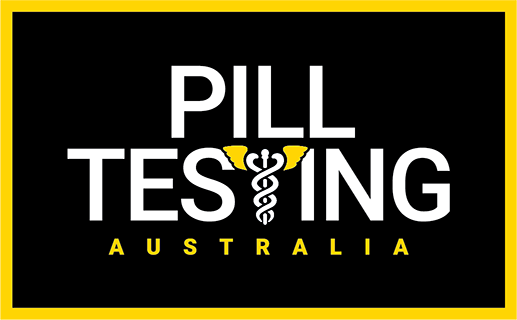A BRIEF HISTORY OF PILL TESTING.
If you are based in Australia, you may perceive ‘pill testing’ or drug checking as a reasonably new and potentially controversial initiative, but it’s not. At the last count there were dozens of groups conducting pill testing in Europe, North and South America, and New Zealand, with that number growing every year.
The first thing to acknowledge is that ‘pill testing’ is already happening, all over Australia, in an unmonitored and unsanctioned fashion.
1980s
The drug ecstasy emerged in Europe and the US. Almost as soon as it moved from niche markets and into the mainstream, reports began emerging of contaminated or tainted product.
1990s
In an effort to avoid impure product, consumers co-opted reagent tests being used by law enforcement to try and ascertain the purity of their drugs. At the time, there weren’t that many products on the market, and reagent testing was not an awful option.
1991
The publication of “Pill Testing – Harm Minimisation gone too far?” Despite the fact that the article was only speculative in nature, it was used more than any other in Australia as ‘proof’ that pill testing should not be introduced.
1992
DIMS founded in The Netherlands
1995
Technoplus founded in France
1996
Modus Fiesta founded in Belgium
1997
Checkit! Founded in Austria
1998
SaferParty founded in Switzerland, Dancesafe founded in USA
1999
Energy Control founded in Spain, SINTES founded in France
2000s
A collaboration between The Enchanted Forest music festival in South Australia, The Enlighten Advocacy group, and Emergency Doctors conducts and evaluates pill testing in Adelaide hinterlands.
Public support for pill testing voiced by some senior AOD figures in Australia
2002
Publication of “PILL TESTING, ECSTASY & PREVENTION- A SCIENTIFIC EVALUATION IN THREE EUROPEAN CITIES”. Quite explicitly, it found that “pill-testing, which is basically a secondary prevention measure, is of direct benefit for the primary prevention of ecstasy use, for example because it motivates potential users to refrain from or postpone their first use of the drug.”
ANKORS establishes drug checking in Canada
2005
The publication of “Underground Pill Testing, Down Under”, still the only report from Australia detailing the results of pill testing at Australian music festival, is published in Forensic Science International. It directly compares the results of reagent testing with laboratory GC/MS, and finds that the former falls short.
In November, after long discussions with the group working in South Australia and others, the Public Health Working Group of the Australian Medical Association passes a resolution calling for a “medically supervised… ethically approved trial… of pill testing in an Australian jurisdiction.”
First described ‘novel psychotropic’ (‘social tonic) in Australia- methylone, 200mg, >99% purity, sold in packets of 4 called ‘Ease’
2007
The protocol for the Royal Adelaide Hospital Based Illicit Testing Project was developed, but did not receive political support in Australia. It later went on to form the template for WEDINOS in Wales, and ACTINOS in the ACT.
2011
Trans-European Drug Information project (TEDI), a network of European Fieldwork Drug Checking services that shares their expertise and data within a European monitoring and information system, established.
2013
Good Practice Guidelines for Drug Checking Services (funded by the EU), produced by NEWIP, in conjunction with TEDI.
The Loop established in the UK – providing back-of-house testing
2015
At the ‘Club Health’ Conference in Lisbon, numerous presentations were heard regarding data being collected from ‘drug checking’ programs in Europe. Australian delegates returned from the conference with a determination to work towards an Australian model. Harm Reduction Australia is launched – with the introduction of pill testing a key priority.
2016
In a bipartisan meeting of researchers and all three of Australia’s major political parties, all of Australia’s major AOD research groups agreed that a system of pill testing should be introduced in Australia as ‘a matter of priority’. A coalition of medical professionals, peer groups and NGOs form the STA-SAFE Consortium to deliver pill testing. Membership was widely canvassed, including a
2017
Despite wide support from the local community, attempts to establish pill testing at the Spilt Milk Festival in the Australian Capital Territory are blocked by a collaboration of conservative territory and federal politicians.
2018
The first state or territory sanctioned pilot of pill testing in Australia occurs at the Groovin’ The Moo, conducted by the STA-SAFE Consortium.
The Trans-Tasman Charter of Ethical Conduct for Pill Testing is developed
Independent evaluators from the Australian National University are appointed by the STA-SAFE Consortium to formally evaluate future pill testing services conducted by the Consortium
The STA-SAFE Consortium is re-launched as Pill Testing Australia.
Pill Testing Australia commits to open exchange of data with the TEDI network
Makkai, T., Macleod, M., Vumbaca, G., Hill, P., Caldicott, D., Noffs, M., Tzanetis, S., Hansen, F., 2018, Report on Canberra GTM Harm Reduction Service, Harm Reduction Australia.
2019
Pill Testing Australia delivered a second, larger scale festival testing trial.
The service was independently evaluated by researchers from ANU:
Olsen A, Wong G, McDonald D. (2019). ACT Pill Testing Trial 2019: Program Evaluation. Australian National University: Canberra ACT.
2022
After years of engagement and advocacy, the ACT Government committed to funding a 6-month fixed-site pill testing trial. CanTEST is a partnership of Directions Health Service, the Canberra Alliance for Harm Minimisation and Advocacy (CAHMA), and Pill Testing Australia launched Australia’s first fixed-site pill testing service. The service delivery model was an adaption of the festival testing trials. The CanTEST trial is evaluated by ANU.
2020
ACT Health released the Festivals Pill Testing Policy:
2023
Following the interim report on CanTEST’s first three months of service delivery, the ACT Government announces the trial is extended for another 7 months.
Olsen A, Baillie G, Bruno R, McDonald D, Hammoud M, Peacock A (2022). CanTEST Health and Drug Checking.
Service Program Evaluation: Interim Report. Australian National University: Canberra, ACT: https://www.health.act.gov.au/sites/default/files/2023-01/Interim%20Report%20Submitted%2019_12-22.pdf
Queensland Government announces it will support a trial of festival-based pill testing.
